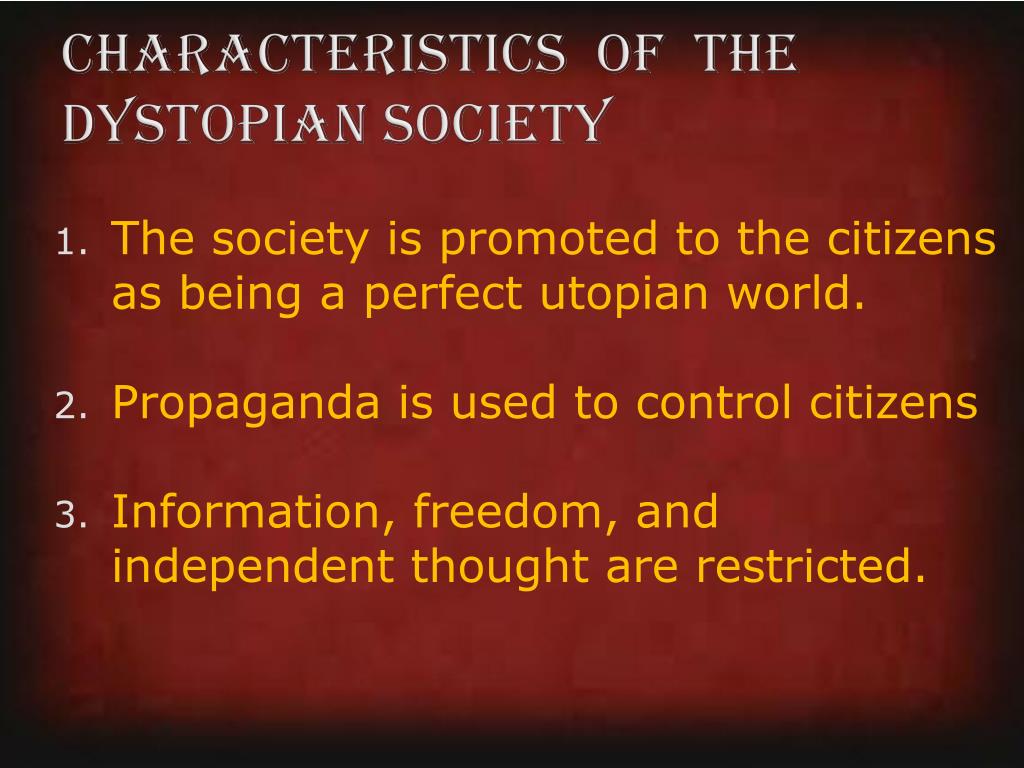In the annals of history, totalitarian regimes cast a chilling presence, their tight grip and ruthless control shaping the lives of millions. From the suffocating confines of North Korea to the once-unyielding Soviet Union, these societies have showcased a sinister tapestry of power meticulously designed to quell dissent and enforce absolute submission.

Image: www.slideserve.com
Totalitarian societies thrive on the cultivation of an all-encompassing control over every aspect of public and private existence. Digging deeper into their labyrinthine structures, we unravel a disturbing web of suppression, fear, and monolithic ideologies that serve as pillars of these oppressive regimes.
Totalitarianism Defined
Totalitarianism, in its essence, is a political system where power rests unchecked in the hands of a singular authority, often embodying the ruler or an exclusive party. This centralized power extends into the remotest corners of social, economic, and political life. The concept dates back to the early 20th century, emerging from the totalitarian states that rose to prominence during that turbulent era.
Within these societies, every facet of life becomes an instrument of control. Dictatorial authority prevails, stifling freedom of thought, speech, and assembly. The individual is submerged within a collectivist framework, depriving them of their autonomy and reducing them to mere cogs in the machinery of the totalitarian state.
Pillars of Totalitarian Oppression
The sprawling apparatus of totalitarian societies rests upon several fundamental pillars:
- Centralized Authority: Power resides solely within a single person or a small group, often elevated to an almost divine status.
- Absolute Control of the Media: Information becomes a vital tool for shaping public opinion, tightly controlled through censorship, propaganda, and the suppression of dissenting views.
- Militarization: Large-scale militaries and security forces serve as instruments of fear and intimidation, preserving the ruling regime’s ironclad hold over the populace.
- Subservient Economy: Economic policies align seamlessly with the political objectives of the totalitarian regime, further enhancing its control over society.
Distinctive Traits of Totalitarianism
Totalitarian societies unveil a range of unique traits that set them apart:
- Extreme Nationalism and Jingoism: Totalitarian regimes instill an inflated sense of national pride and loyalty, exploiting patriotism to justify oppressive policies.
- Censorship, Surveillance, and Oppression: Dissent is ruthlessly suppressed, with open surveillance, informant networks, and severe punishments employed to crush any hint of opposition.
- Subjugation of Individuals: The state reduces individuals to subservient entities, suppressing freedoms and fundamental rights.
- Arbitrary and Enforced Conformity: Unwavering uniformity and obedience are mandated, with any deviation from the prescribed norms severely punished.
- Permanent Conflict and an External Enemy: Totalitarian regimes perpetuate a state of imminent threat, fostering fear and justification for their heavy-handed tactics.

Image: www.coursehero.com
Modern Manifestations of Totalitarianism
Totalitarianism is not limited to historical chapters. In contemporary times, iterations of totalitarian ideologies resurface in different guises. Dictatorships and authoritarian regimes adopt elements of totalitarian control in varying degrees, implementing surveillance systems, restricting free expression, and diminishing civil liberties.
Amidst the digital landscape, concerns arise over the potential for technology to exacerbate totalitarian tendencies. Social media platforms, capable of influencing public perception and shaping political discourse, harbor both opportunities and risks. Governments and corporations may wield these tools to exert control and stifle dissent.
Expert Advice
Understanding the insidious nature of totalitarian societies enables us to proactively counter their influence. Several measures can help safeguard against the encroachment of oppressive policies:
- Educate and Inform: Fostering critical thinking and challenging propaganda are crucial in resisting totalitarian ideologies.
- Value Free Expression and Dissent: Protect freedom of speech, encouraging open and robust debate even when dissent surfaces.
- Monitor and Resist: Stay vigilant against government overreach and resist efforts to silence dissent or erode civil liberties.
- Strengthen International Cooperation: Build global alliances to promote human rights and uphold democratic values.
What Are The Traits Or Characteristics Of A Totalitarian Society
Conclusion
Totalitarian societies remain a vile reminder of the unchecked power and oppression that humans are capable of inflicting upon one another. While history provides valuable lessons, it also echoes the importance of continued vigilance. By understanding the insidious characteristics and manifestations of totalitarianism, we can equip ourselves to resist its destructive pull and safeguard the fundamental principles of democracy and human freedom.
Have you encountered totalitarian tendencies in your corner of the world? Share your experiences in the comments below! Understanding these insidious threats enables us to combat their influence, safeguarding our liberties and fostering a society where the voices of all are heard and respected.